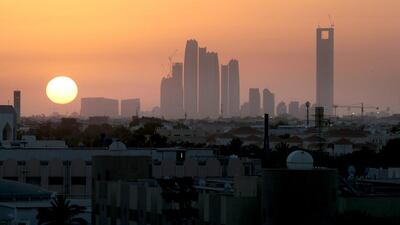A friend sent me a photo the other day – a group of women "of a certain age", as the French like to say, laughing uproariously, with the type of intimacy that only comes with years of friendship.
For a split second, as I looked at the photo, I thought my friend had sent me a picture of our mothers from long ago, but I was wrong. The picture was of us, a group of friends who have known each other from college. One of the things we were laughing about, if I remember correctly, was the fact that we have now known each other longer than we haven’t known each other. That math stunned us, especially given that when we are together, we still feel (and perhaps sometimes act) as if we’re the same age as when we first met. In my mind’s eye, when I think about these friends, I see them as they were when I first met them.
But the photo, of course, tells a very different story. We’re wearing more sensible shoes than we did in our twenties, and if we dare a high heel at this point, we pay the price in aching backs and sore arches the next day. When the menus come out at the restaurant, so do the reading glasses. With these friends, I experience the same kind of double vision that I sometimes do with my children: I see the past and the present simultaneously, hear the echoes of old voices mingling with the current conversations.
Lately, I’ve had that same experience when I drive around Abu Dhabi, although the double vision is literal rather than metaphoric. I can see the skeletons of buildings from the 1950s and 1960s coming down as the exoskeleton of yet another glass tower gets put in place. The buildings gleam as they go up, but every shiny tower suffers the same fate: an eventual en croute wrapping of salt, sand and dust that is the inevitable gift of the Gulf air.
Like many cities, Abu Dhabi seems to be in a state of perpetual transition, but transitions seem to happen faster here, and with less warning. One day, your favorite bakery is there, the next day it’s shuttered up and no one knows when, or if, it will re-open. Even if the eventual replacement bakes wonderful bread, we lose the thread of the relationship we had with the previous tenant who knew which kind of naan we preferred without us having to ask. I am sure that some Abu Dhabians are still in mourning for the loss of the Volcano Fountain, for example, even though they take pleasure in the bike paths along the newer Corniche.
In New York and in Abu Dhabi, my children get bored with my retrospection. My litanies of “that used to be…” and “remember when there was…” only frustrates them; they’re young and believe in the unfettered benefit of progress. In their minds, I’m pretty much just a cranky old lady who spends too much time thinking about things “back in the day”. They’re right, to some degree, I suppose (don’t tell them I said that), but I can’t help but wonder what happens if we lose our anchors to the past?
If a city loses all its old neighborhoods and buildings, the arc of its progress gets lost in the process, along with, perhaps, its origin stories. Abu Dhabi’s amazing transformation from pearl-diving outpost to global hub seems less amazing if all we see when we walk around is an unbroken row of glass towers marching along the coastline of the Gulf. Long-time friendships serve a similar purpose: they become intimate mirrors that reflect our progress and our choices; they mark the paths of our lives like threads that guide us through a maze.
The photo that my friend sent me is not the most flattering picture of me, and while I wish I were wearing more fashionable shoes, I’m going to frame the picture nonetheless. It’s a snapshot of our current moment – and our past.

